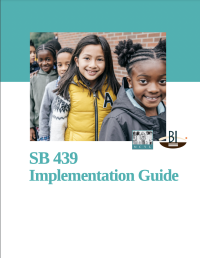Keeping Younger Children Out of the Juvenile Court System (2017)
Keeping Younger Children Out of the Juvenile Court System (2017)
Numerous scientific studies, court decisions and experience have demonstrated that children are less culpable than adults for the same acts, and are also less able to meaningfully navigate justice system processes, including working with their own attorneys. Moreover, system involvement can have lasting and negative psychological and health impacts on children. Ultimately, the needs underlying their alleged offenses are better addressed through alternatives to prosecution, including through child welfare, education, health care or human services.
Senate Bill 439 (Mitchell, Lara) would exclude children 11 years old and younger from prosecution in juvenile court. The bill would protect young children from the negative impacts of formal justice system involvement, promote their rights, health, and well-being through alternative child-serving systems, and decrease the amount of resources wasted in the juvenile justice system.
The United Nations Convention on the Rights of the Child recommends a minimum age of criminal responsibility of at least 12 years old. As of 2014, 19 U.S. states had established a minimum age threshold for juvenile delinquency jurisdiction, with twelve states setting a minimum age of 10.
California has no law specifying a minimum age for juvenile justice jurisdiction, meaning that young children of any age can be prosecuted in the juvenile justice court system. In 2015, 874 referrals were made in California to prosecute children under 12. Of these referrals, over 70 percent were closed or dismissed before the child’s case reached court, and approximately 250 youth under age 12 were prosecuted. In the end, fewer than 8 percent of the prosecuted cases were sustained as true.
